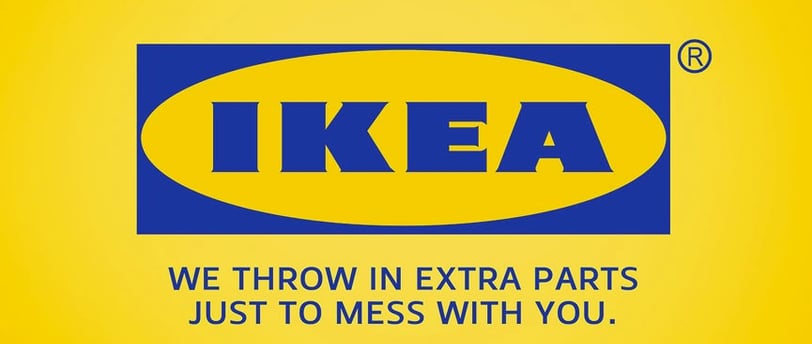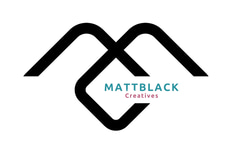If Famous Brands Had Honest Slogans: A Satirical Masterclass in Authentic Branding
In an era where consumers crave authenticity over polished perfection, the concept of "honest slogans" has emerged as a cultural reset button. Graphic designer Clif Dickens' viral Honest Slogans series—which reimagines brand taglines with brutal transparency—has sparked both laughter and introspection. From mocking Gatorade’s role as a hangover cure to exposing Instagram’s filter-dependent identity, these satirical gems reveal uncomfortable truths about consumerism. But beyond the humour lies a profound lesson for brands: audiences increasingly reward vulnerability and self-awareness. As we dissect these fictional taglines, we uncover why strategic authenticity might be the ultimate competitive advantage in website design, brand development, and social media management.
2/21/20253 min read


The Art of Brand Satire: When Truth Meets Dark Humour
Fast Food Fantasies: Grease, Guilt, and Glorious Honesty
The fast-food industry has long perfected the art of selling indulgence as virtue. McDonald’s iconic "I’m Lovin’ It" morphs into “Your Shame Tastes Delicious”, a nod to the post-binge guilt that follows every Extra Value Meal.
Subway’s erstwhile health halo is shattered with “We’re Not Even Pretending This Is Health Food Anymore”, lampooning the chain’s pivot from Jared Fogle’s oatmeal raisin cookies to meatball marinara excess.
Pizza Hut’s salad bar—a token gesture toward wellness—earns the jab “Because Someone Ordered a Side of Regret”.
These slogans resonate because they acknowledge the unspoken contract between brand and consumer: we know it’s bad for us, but we’ll gladly trade longevity for dopamine.
Tech Titans: Silicon Valley’s Open Secrets
Silicon Valley’s utopian promises crumble under the weight of honest rebranding. Instagram becomes “Masking Bad Photos Since 2010”, distilling its core function into a single, self-deprecating line.
Apple’s “An Apple a Year Makes the Money Disappear” skewers its pricing strategy, while LinkedIn’s “Connecting You to People You Tolerated at Work" captures the platform’s awkward professional theatre.
Even YouTube’s “Watch This Instead of Being Productive” admits to being the digital age’s premier procrastination tool.
These slogans work because they articulate the user experience without the corporate spin—a tactic more brands could stand to emulate.
Retail Realities: From Bargain Bins to Emotional Blackmail
Retailers aren’t spared from satirical scrutiny. Walmart’s “Come for the Prices, Stay for the Freak Show” celebrates the chaotic charm of its in-store “people-watching safari.” IKEA’s “Swedish for ‘You’ll Need a Divorce Lawyer’” weaponizes the universal trauma of flat-pack furniture assembly.
CVS earns “The Only Thing Longer Than Our Receipts Is the Line You’re Still Standing In”, a poetic ode to retail purgatory.
By leaning into their flaws, these fictional slogans paradoxically humanize brands—a lesson for businesses clinging to sterile perfection.
Why Brutal Honesty Resonates in the Age of Cynicism
The Avis Paradox: How Second Place Became a Marketing Triumph
In 1962, Avis flipped the script with its legendary “We Try Harder” campaign, openly admitting its #2 status in the rental car market. The result? Market share surged from 11% to 35% within two years.
This wasn’t just honesty—it was strategic vulnerability. By acknowledging weakness, Avis positioned itself as the underdog ally to frustrated consumers.
As Velocity Partners notes, the campaign’s longevity (still in use today) proves that audiences crave brands willing to “put their worst foot forward”.
Emotional Truth Over Literal Fact: The Kynship Principle
Marketing agency Kynship argues that effective branding hinges not on literal truth, but on emotional resonance. Take Oasis Drinks’ 2015 campaign, which mocked gym selfies and reality TV with slogans like “Because Adulting Is Hard”.
By aligning with millennials’ collective exhaustion, Oasis transformed a fruit drink into a cultural ally.
Similarly, Clif Dickens’ slogans succeed because they validate consumer scepticism—a tactic that forges deeper connections than any sanitized tagline.
The Risk-Reward Calculus of Self-Deprecation
Not every brand can pull off radical honesty. When animal rescue organization Pawmetto Lifeline advertised Prancer—a “neurotic, man-hating, animal-hating gremlin” of a dog—they risked alienating adopters. Instead, the campaign went viral, landing Prancer a perfect home.
The lesson? Audiences forgive candour when it’s paired with humour and purpose.
For brands, the key is balancing satire with substance—a tightrope walk requiring expert copywriting and audience insight.
What Brands Can Learn from Satirical Slogans
Lesson 1: Vulnerability Builds Trust
Consumers instinctively distrust overly polished messaging. A study by Cohn & Wolfe found that 91% of consumers prefer “honest and trustworthy” brands.
By contrast, campaigns like Volkswagen’s “It’s Ugly, But It Gets You There” disarmed critics and boosted sales precisely because they embraced imperfection.
Lesson 2: Specificity Trumps Generality
Honest slogans thrive on granularity. Lay’s “Bet You Can’t Eat Just Six Handfuls” outperforms generic claims like “Tasty Snacks” because it targets a specific behaviour.
Similarly, Harley-Davidson’s fictional “Because Midlife Crises Need Soundtracks” speaks directly to its core demographic’s unspoken motivations.
Lesson 3: Humour Is a Trojan Horse for Truth
Satire disarms audiences, making tough truths palatable. Old Spice’s real-world pivot from “Your Grandpa’s Deodorant” to “Smell Like a Legend” succeeded by mocking its own dated image before reinventing it.
Humour provides cover for brands to address weaknesses while showcasing creativity.
Conclusion: The Fine Line Between Satire and Strategy
While Clif Dickens’ slogans are designed to amuse, they underscore a seismic shift in consumer expectations. Audiences no longer want brands to lecture them; they want partners who “get the joke.” For businesses, this means embracing authenticity in website copy, social campaigns, and brand voice.
At MATTBLACK Creatives, we specialize in helping brands walk this tightrope—crafting messaging that’s equal parts witty and strategic. Whether you’re revamping a tired tagline or building a social presence that resonates, remember: today’s consumers don’t need perfection. They need a brand that’s brave enough to say, “We’re Flawed, But We’re Yours.”
Now, who’s ready to turn their marketing skeletons into comedic gold?
